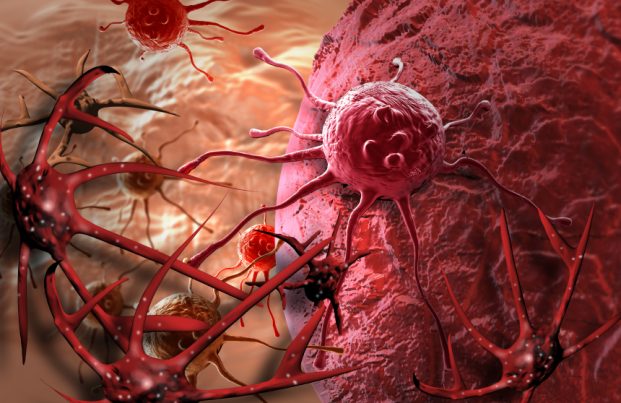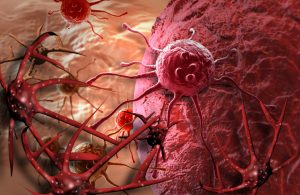
Papillary adenocarcinoma – causes, side effects and treatments at NaturalPedia.com
Friday, July 20, 2018 by Michelle Simmons
http://www.naturalpedia.com/papillary-adenocarcinoma-causes-side-effects-and-treatments-at-naturalpedia-com.html

Papillary adenocarcinoma is an adenocarcinoma containing finger-like processes of vascular connective tissue covered by neoplastic epithelium, projecting into cysts or the cavity of glands or follicles. It can occur in the ovary, thyroid gland, and lungs. In general, an adenocarcinoma is a form of cancer that occurs in the glands, the cells that release substances within or out of the body. Pulmonary papillary adenocarcinoma or adenocarcinoma of the lungs is the most commonly diagnosed type of lung cancer that typically develops in the peripheral airways. The exact cause of papillary adenocarcinoma is not known.

Known symptoms of papillary adenocarcinoma
The known signs of papillary adenocarcinoma of the lungs include shortness of breath that gets worse over time; persistent cough; blood in cough; pain in the chest; and changes to voice, hoarseness, or loss of voice.
Body systems harmed by papillary adenocarcinoma
Initially, papillary adenocarcinoma, particularly pulmonary papillary adenocarcinoma, only harms the respiratory system. However, because cancer cells can break off and form new tumors nearby, other body systems can also be harmed. Other body systems that can be harmed by papillary adenocarcinoma include the lymphatic, skeletal and muscular, nervous, digestive, immune, and circulatory and cardiovascular systems.
List of foods or nutrients that prevent papillary adenocarcinoma
There is no information on what foods or nutrients prevent papillary adenocarcinoma.
Treatments, management plans for papillary adenocarcinoma
Natural treatments for lung cancers like pulmonary papillary adenocarcinoma include acupuncture, aromatherapy, massage, medical marijuana, yoga, and herbal supplements such as astragalus, American silvertop root, licorice root, fu lin, snake-needle grass, and asparagus root.
Where to learn more
- Presence and amount of gut bacteria can predict how fast pancreatic cancer cells grow
- A third of cancer cases are related to obesity and dietary choices
- Vast majority of people survive common thyroid cancer even without treatment
- Fire retardant chemicals used in your mattress linked to 74% rise in thyroid cancer tumors
- CONFIRMED: Three Mile Island nuclear accident found to have significantly increased thyroid cancer in surrounding counties due to radioactive Iodine-131
Summary
Papillary adenocarcinoma is an adenocarcinoma containing finger-like processes of vascular connective tissue covered by neoplastic epithelium.
Papillary adenocarcinoma of the lungs causes shortness of breath, persistent cough, blood in cough, pain in the chest, and changes to voice, hoarseness, or loss of voice.
Papillary adenocarcinoma of the lungs harms the respiratory system.
Natural treatments for lung cancers like pulmonary papillary adenocarcinoma include acupuncture, aromatherapy, massage, medical marijuana, yoga, and herbal supplements.
Sources include:
Tagged Under: Tags: Papillary adenocarcinoma





